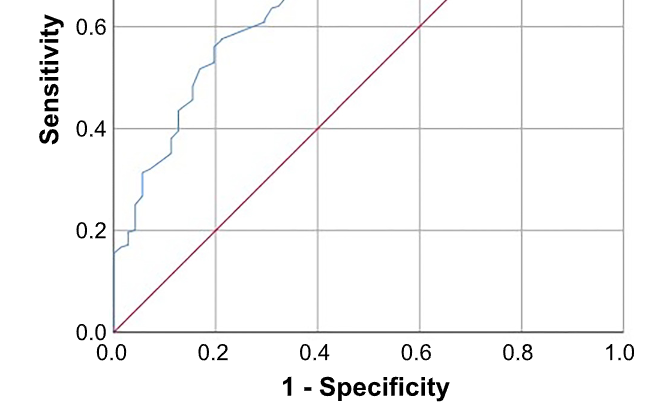The predictive role of modified stress hyperglycemia rate in predicting early pneumonia after isolated coronary bypass surgery in patients with diabetes mellitus
DOI:
https://doi.org/10.17305/bb.2024.10330Keywords:
Coronary artery bypass graft, postoperative term, pneumonia, risk factorAbstract
Postoperative pneumonia (PP) is one of the most serious complications following coronary artery bypass graft (CABG) surgery. The recently developed admission blood glucose (ABG)/estimated average glucose (eAG) ratio has been identified as a prognostic marker in cardiovascular diseases. This study aimed to investigate the predictive role of the modified ABG/eAG (mABG/eAG) ratio in the development of pneumonia during the early postoperative period in diabetic patients undergoing CABG surgery. In this single-center study, diabetic patients who underwent isolated coronary bypass surgery at the Training and Research Hospital between 1 January 2018 and 1 January 2023 were included. Patients who did not develop PP were assigned to the control group, while those who developed PP were assigned to the PP group. A total of 549 patients were included in the study, 478 patients in the control group (median age = 58 years [range 35-81]) and 71 patients in the PP group (median age = 63 years [37-86]). In the multivariate analysis, the use of packed blood products (odds ratio [OR] = 1.685, 95% confidence interval [CI]: 1.453 - 1.892; P = 0.027), mABG/eAG ratio (OR = 1.659, 95% CI: 1.190 - 2.397; P = 0.019), and re-intubation (OR = 1.829, 95% CI: 1.656 - 1.945; P = 0.034) were identified as independent predictors for the development of PP. Our findings demonstrate that the mABG/eAG ratio is an independent predictor of PP in diabetic patients undergoing CABG surgery. Based on our results, high-risk patients can be identified by calculating the mABG/eAG ratio.
Citations
Downloads

Downloads
Published
Issue
Section
Categories
License
Copyright (c) 2024 Ahmet Kağan As, Mesut Engin

This work is licensed under a Creative Commons Attribution 4.0 International License.









